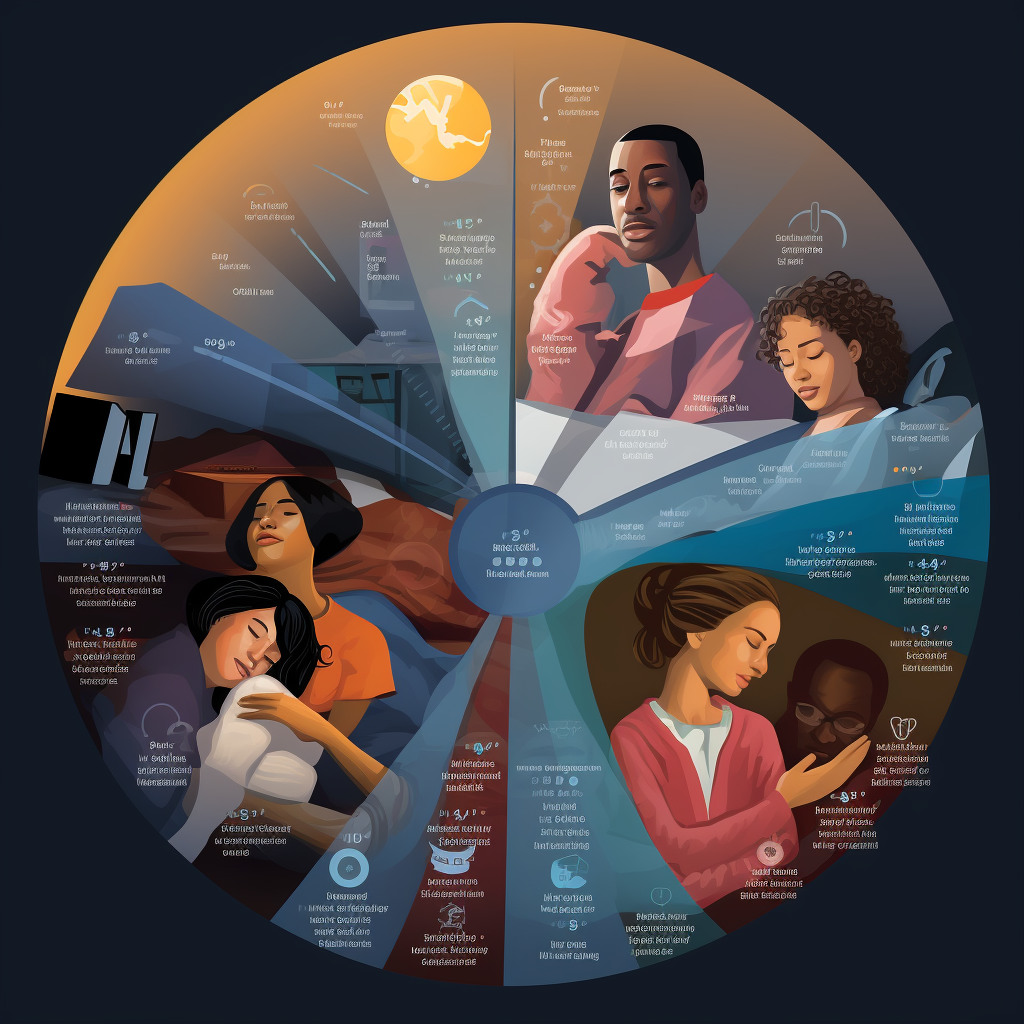Understanding the impact of socioeconomic factors on sleep quality, duration, and disorders. Learn evidence-based strategies to improve sleep health for diverse socioeconomic groups.
Socioeconomic Status and Sleep: Exploring the Impact of Income, Education, and Occupation on Sleep Quality and Duration
Sleep is a crucial aspect of our well-being, influencing our physical health, cognitive function, and emotional well-being. Recent research highlights the significance of socioeconomic factors, such as income, education level, and occupation, in shaping sleep patterns and overall sleep health. Understanding the relationship between socioeconomic status and sleep can empower individuals to make informed decisions to improve their sleep quality and duration.
Socioeconomic Factors and Sleep Quality
Numerous studies have revealed that individuals from lower socioeconomic backgrounds often experience poorer sleep quality compared to those with higher socioeconomic status. Factors such as financial stress, limited access to healthcare, and challenging work conditions can contribute to increased sleep disturbances, difficulty falling asleep, and reduced sleep duration. Recognizing these associations helps to address the unique challenges faced by different socioeconomic groups in achieving optimal sleep quality.
Sleep Duration Disparities and Socioeconomic Status
Socioeconomic status also plays a role in determining sleep duration. Individuals from lower socioeconomic backgrounds tend to have shorter sleep durations, which can have adverse effects on their physical and mental health. The demanding nature of certain occupations, irregular work schedules, and limited time for rest due to financial responsibilities are contributing factors to this discrepancy. Strategies aimed at promoting healthy sleep duration within different socioeconomic groups can lead to improved overall well-being.
Sleep Disorders and Socioeconomic Disparities
The impact of socioeconomic status extends to the prevalence of sleep disorders. Research suggests that individuals from lower socioeconomic backgrounds are at a higher risk of developing sleep disorders such as insomnia, sleep apnea, and restless leg syndrome. Factors such as limited access to healthcare, high levels of stress, and unhealthy sleep habits can contribute to these disparities. By recognizing these connections, targeted interventions can be developed to improve sleep outcomes for individuals from diverse socioeconomic groups.
Overcoming Sleep Challenges and Enhancing Sleep Health
Although socioeconomic factors can pose challenges to obtaining optimal sleep, there are strategies that individuals can employ to enhance their sleep health regardless of their socioeconomic status. Here are some evidence-based recommendations:
- Prioritize sleep as an essential part of overall well-being.
- Establish a consistent sleep routine, including regular bedtimes and wake-up times.
- Create a sleep-conducive environment that is quiet, dark, and comfortable.
- Practice stress management techniques, such as relaxation exercises or mindfulness, to promote better sleep.
- Seek support from healthcare professionals or sleep specialists if experiencing persistent sleep difficulties or suspected sleep disorders.
- Engage in regular physical activity, but avoid intense exercise close to bedtime.
- Adopt healthy sleep habits, including limiting caffeine and electronic device usage before bed.
By understanding the relationship between socioeconomic status and sleep, individuals can make informed choices and implement strategies that promote better sleep quality, duration, and overall well-being.





